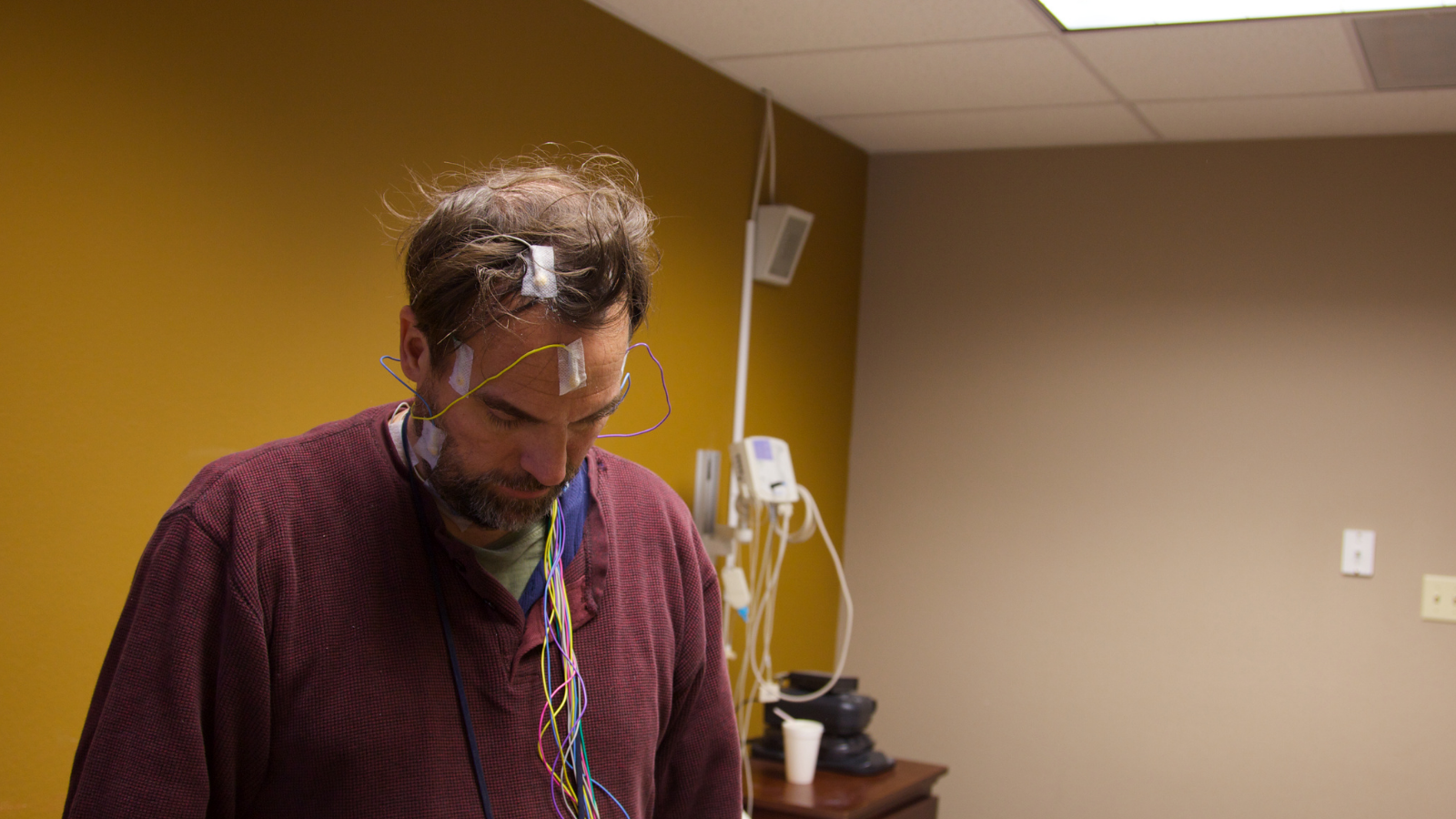#TripleGivingTuesday news:
New Study Underway!
Sleep Disturbances in ME/CFS

From the desk of Ronald Tompkins, MD, ScD
Director, ME/CFS Harvard Collaboration
Chief Medical Officer, Open Medicine Foundation
To kick off the second week of Triple Giving Tuesday, Open Medicine Foundation (OMF) is thrilled to announce that we are funding a new collaborative research project! Conducted across the OMF Collaborative Network, this research initiative will investigate sleep disturbances in ME/CFS.
Sleep Disturbances in ME/CFS
Study duration: 18 months
Conducted at The Harvard ME/CFS Collaboration at the Harvard Affiliated Hospitals

About the Study
One required symptom for diagnosing ME/CFS is non-restorative sleep, that is, waking up feeling exhausted after a full night of sleep. This might suggest that sleep dysfunction could be involved in the ME/CFS disease process. New, more refined tools, such as high frequency recordings of an electroencephalogram (EEG), a test that detects electrical activity in the brain, could potentially uncover significant sleep dysfunctions in ME/CFS.
It is possible that inflammation of the Central Nervous System (CNS) plays a role in the symptom of unrefreshing sleep. Direct evidence for CNS inflammation in ME/CFS was revealed in a 2014 report, which demonstrates that microglial activation is one of the main cell types involved in neuroinflammation. This activation was seen in the thalamus (structure in the center of the brain) in nine ME/CFS patients.
Despite the fact that ME/CFS includes symptoms of profound fatigue and cognitive dysfunction or “brain fog”, no CNS biomarker, sleeping or brain biomarker have been identified to date.
Methods
The study will examine EEG frequencies (electrical activity occurring in the brain) of sleep and wakefulness in ME/CFS patients. Concurrently, Dr. Jonas Bergquist will evaluate cerebrospinal fluid proteomics at the Uppsala Collaborative Research Center. Dr Bergquist hopes to identify orexin (a neuropeptide that regulates arousal, and wakefulness) and related proteomic inflammatory markers in patients who have developed ME/CFS.
What does this study mean for ME/CFS patients?
This project will help us better understand how to eventually treat devastating sleep deficiencies and fragmentation that is associated with ME/CFS.
|
|
Donate today to help support these groundbreaking projects conducted across the OMF Collaborative. Your support brings us one step closer to treatments and a cure… and from now until November 30, your gift will be TRIPLE MATCHED!
That means $10 really equals $30 and so on!
More ways to donate




